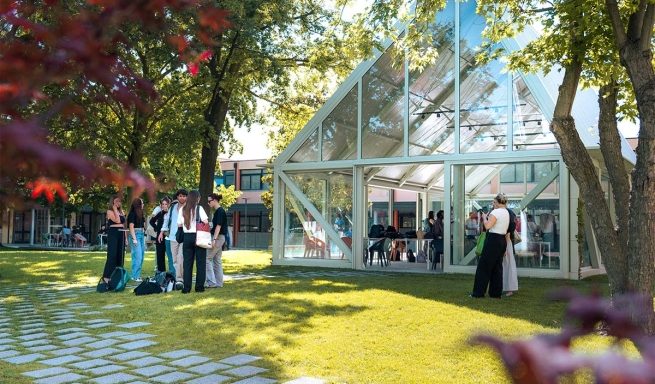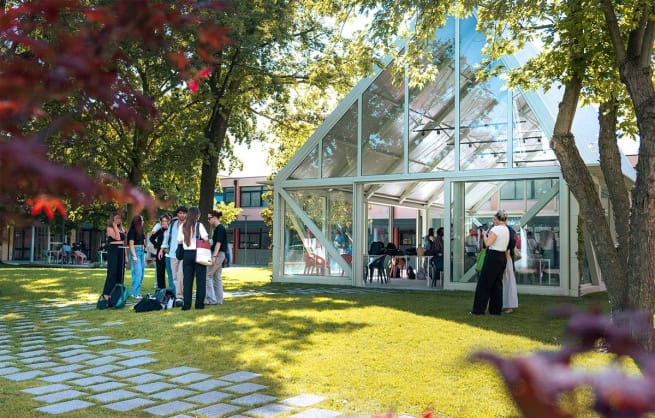(Istituto Universitario Salesiano de Venezia, Italia) – A quantitative and qualitative study promoted by the Salesian University Institute, Venice (IUSVE) on the “Go beyond traditional education” project in the St Mark Province of North-East Italy (INE), and presented in Verona on 29 May in the presence of Italian and global managers from “Google for Education”, has revealed the positive impact of Artificial Intelligence (AI) in education, through what is considered one of the most significant experiments in the world in this field.
The AI integration project was tested in 26 Salesian primary and secondary schools in the Triveneto, involving more than 9,000 students e 700 teachers, offering more than 600 teaching activities enhanced by Google Gemini for Education algorithms in collaboration with MR Digital.
“We have given priority to the ethical dimemsion” Fr Lorenzo Teston, Delegate for Slaesian schools in INE explains. With Alberto Grillai, delegate for Vocational formation in INE, he coordinated the impressive project. “Through a balanced approach that combines technological innovation and human values to address the challenges of the digital age, we have developed an open educational framework published on salesianinordest.it iiùn which to embed future experiments.”
The quantitative results of the survey conducted by Davide Girardi, General Research Coordinator at IUSVE, on a sample of 520 teachers from Salesian schools involved in the ’Go beyond traditional education” project, paint a very encouraging picture of the integration of Artificial Intelligence in teaching.
47% of the teachers interviewed reported a significant improvement in student attention and participation, while 40% found that time was used more efficiently thanks to the ability to quickly generate personalised content and optimise lesson preparation. Particularly significant is the fact that 39% of teachers observed an increase in the quality of learning, with specific benefits for students with special educational needs.
Enrico Miatto, head of the Pedagogy Department at IUSVE, who, together with researchers Matteo Adamoli, Michela Drusian, Elena Mantoet and Jacopo Masiero, conducted a qualitative analysis of the Salesian project in Triveneto through focus groups with digital animators from Salesian primary and secondary schools and vocational training tutors, revealed three key transformations related to artificial intelligence in education:
AI as a support tool for teachers (assistance in creating teaching activities, personalising training courses and preparing tests), a rethinking of home study to prevent passive use of technology and collaborative use of AI in the classroom for the co-construction of knowledge, and finally an evolution of the role of the teacher towards accompaniment, focusing on the development of critical thinking and activating the school-family relationship in the responsible management of emerging technologies.
‘The survey, which is unique in the international arena in terms of the breadth and depth of educational experimentation with Google Gemini for Education,’ explained Fr Nicola Giacopini, director of IUSVE, ‘will continue throughout 2025 with further developments aimed at accompanying schools on a path of sustainable and inclusive innovation.’
Source: ANS – “Agenzia iNfo Salesiana”


